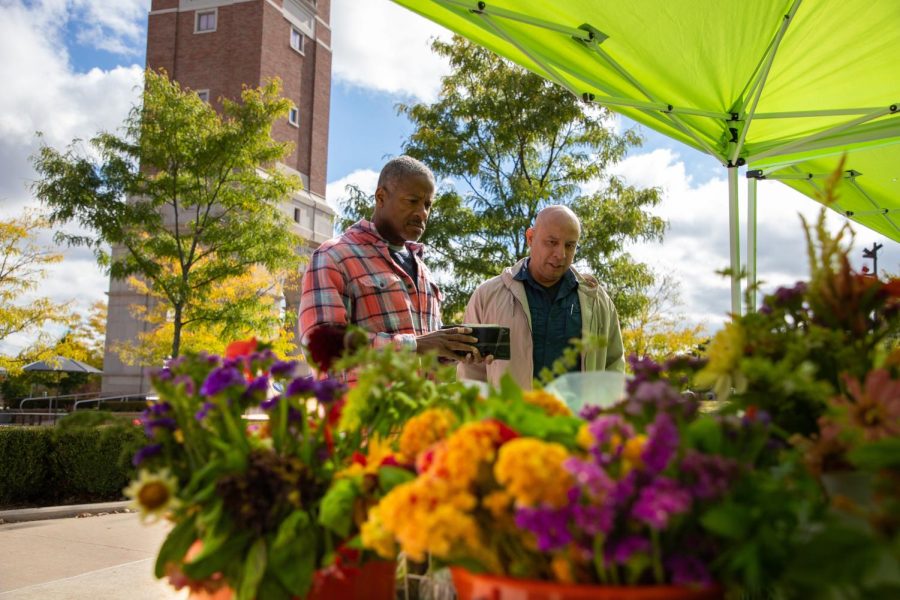Growing Grizzlies hosts first fresh produce farm stand on campus
On Sept. 8, Oakland University’s Student Organic Farm and the Growing Grizzlies Student Organization hosted their first on-campus farm stand for the fall semester. The farm stand, stationed next to Elliott Tower, will return to campus each Thursday weekly from 10 a.m. to 1 p.m. until Oct. 6.
The stand sells a variety of fresh produce, including a range of herbs and vegetables such as kale, peppers and zucchini.
Additionally, a large selection of flower bouquets is available for purchase.
Currently, cash and check are the only forms of payment accepted at the farm stand. The stand also accepts Grizz Green vouchers, which students can obtain from the Golden Grizzlies Food Pantry.
Surprisingly, all of the items available at the farm stand are grown right on OU’s campus, at the Student Organic Farm. The farm, run entirely by OU students and faculty, is a marvelous display of local horticulture and sustainability.
The Student Organic Farm is located on the southeast corner of campus, on the intersection of Butler Road and Adams. At the entrance sits a hand-painted sign, welcoming visitors to the farm.
Over 50 varieties of produce and flowers are grown on the farm. The two open-air gardens contain most of the plants, while the rest are contained within a hoop house.
“The hoop house is a plastic-covered growing space that protects plants from the elements,” Growing Grizzlies President Kelly Hillman said. “We use the hoop house to grow things like tomatoes and beans, and to test new methods of growing.”
The farm’s hoop house was expanded in 2020, in an effort to extend the farm’s growing season. However, due to soil compaction during the renovation process, raised garden beds were necessary.
“After the expansion process, we realized that the soil was too compact to sustain plant life,” Hillman said. “So, students from Pontiac came to the farm weekly over the summer to build raised beds. The height of the beds is perfect for minimizing back pain while gardening.”
Another interesting aspect of the Student Organic Farm is its Farm Share program. Through this program, local individuals can purchase produce directly from the farm.
“Student workers harvest fresh produce for community members that purchase a Farm Share plan,” Hillman said. “We have several local individuals that participate in the program.”
Fay Hansen, an associate professor of biological sciences and the Growing Grizzlies advisor, established the farm. Currently, Hansen teaches organic farming classes to students in a classroom located right on the farm.
Classes on the farm are open to students from all fields of study. The courses provide a hands-on approach to learning, while encouraging students to improve their teamwork and critical thinking skills.
In addition to classrooms, the farm also provides a home base for the Growing Grizzlies student organization. Growing Grizzlies focuses on sustainable food production and its impact on the local community.
“Most of our members graduated last year, so our club is in the process of rebuilding,” Hillman said.
This year, Growing Grizzlies hopes to put on a variety of events that teach valuable skills to their members and provide valuable service to the community. Furthermore, the group aims to initiate fundraising efforts to improve the farm.
Students can join Growing Grizzlies through the club’s GrizzOrgs page. In order to get more involved with the Student Organic Farm, students can visit the farm’s webpage or Handshake job listings.










